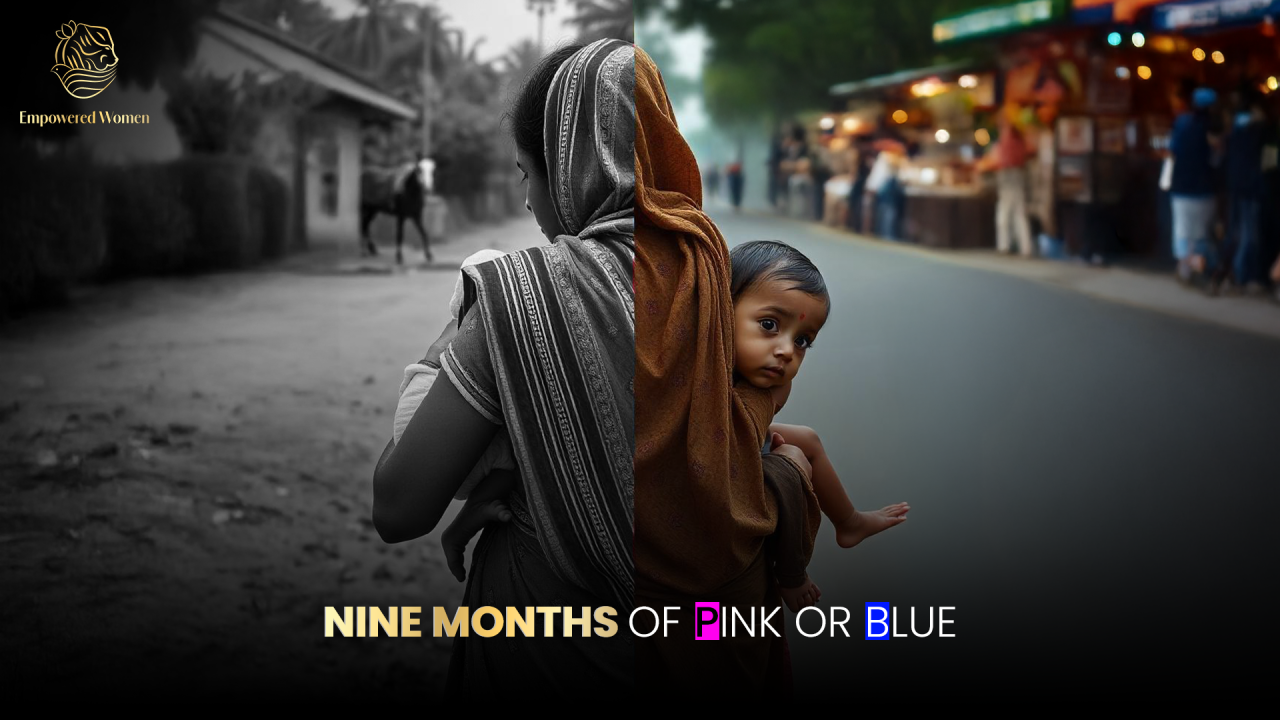In Indian culture from the moment a woman announces her pregnancy, blessings pour in, but so do expectations. Elders say, “May you have a chand sa beta!”—a son as bright as the moon. It sounds like a sweet wish, doesn’t it? But beneath that blessing is a mountain of pressure, often leaving the woman wondering what lies ahead if her child happens to be born a girl.
The Silent Fear
Imagine spending nine months carrying a life while constantly worrying about whether that life will be accepted. It’s a strange and painful irony. She carries that child within her, nurturing it, bonding with it, but always with a lingering worry in her heart. Will her family welcome this baby? Will her daughter, if she has one, have to fight for her place from day one?
In many families, the arrival of a daughter is met with smiles—polite smiles, tempered with remarks like, “Don’t worry, beta. Try again next time for a boy.” As if a daughter is merely a “practice round” for the real deal. In homes that still hold traditional beliefs close to heart, a daughter can be seen as an “extra responsibility.”
The irony is that while people wish for a “chand sa beta,” they forget that every human, whether a boy or girl, brings their own unique brightness into the world. But society loves to measure brightness by gender, often blinding itself to the fact that daughters, too, can shine in ways a son might not.
The “Identity Crisis”
Now, let’s consider the child born under these circumstances. A daughter who arrives in a world where her gender was quietly dreaded, where her identity is shaped by her parents’ hushed disappointment. Her welcome might lack the fireworks reserved for a *son, her first steps celebrated without the same zest. And slowly, that child grows up understanding, however faintly, that her very existence is a compromise.
A girl in such an environment learns early that she must prove herself, that she must somehow “earn” her place, whereas her brother—if she has one—inherits his position naturally. She internalizes that she is “lucky to be here,” as if being born was a privilege rather than a right. Yet she survives, learning to dodge around society’s expectations, taking her place with grace despite knowing she wasn’t exactly celebrated. And that takes strength.
A Woman’s Silent Resilience
For the mother, these nine months become a silent journey of resilience. She understands society’s pressures, yet she grows attached to the little life within her, son or daughter. And while society may have its “preferences,” her heart is ready to welcome her child as they are. It’s the paradox of motherhood in a world that values sons: she loves without condition, even as others weigh her worth based on her child’s gender.
If she does have a daughter, she knows her child will face challenges, perhaps the same ones she’s encountered. Yet, silently, she hopes her daughter will find her way. And maybe, just maybe, be the one to change things for the next generation. Every mother who has a daughter, in some way, carries the hope of a world that will one day judge less and embrace more.
Rethinking “Chand Sa Beta”
It’s time to rethink phrases like “chand sa beta” and recognize that daughters are capable of being every bit as bright and successful. The sooner we realize this, the sooner we’ll stop burdening mothers with the fear of giving birth to daughters, and start celebrating every child as a gift.
Let’s look beyond “chand sa beta” and instead wish for healthy, kind, and brave children who will bring joy to their families and communities. Sons and daughters are both necessary, both valuable, and both capable of shaping the future. And the first step to achieving this balance is by letting go of age-old ideas and allowing mothers, fathers, and society to appreciate every child as a miracle.




